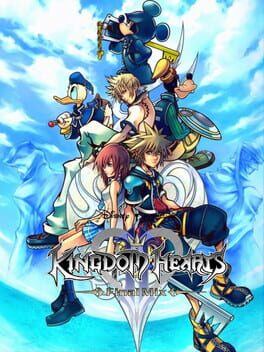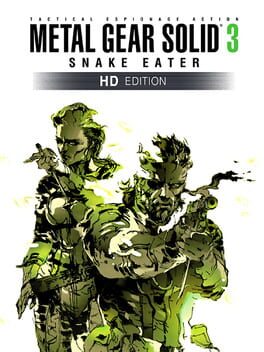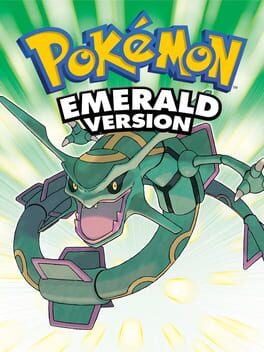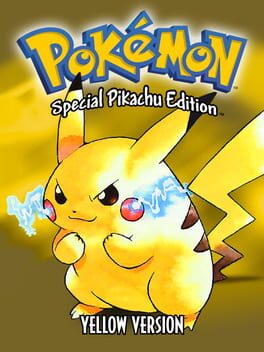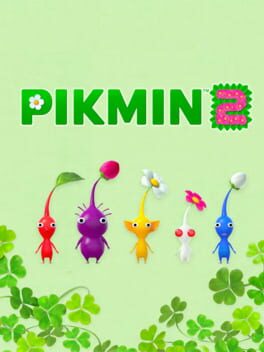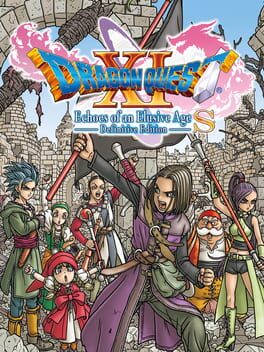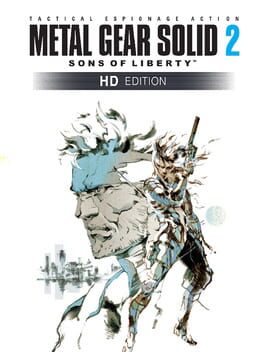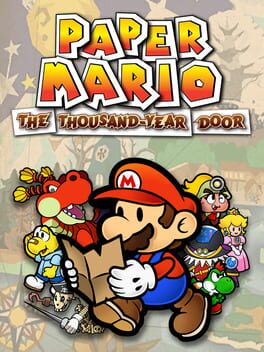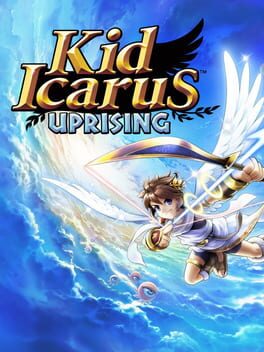oldfriendfox
25 Reviews liked by oldfriendfox
This review contains spoilers
I know it's boring to bring up Kingdom Hearts' public perception in conversation about ANYTHING tangentially related to the series, but I can't stress enough that I really didn't expect to ever dedicate so much of my time and mind to these games. Like, if I didn't have friends who held this game specifically in such high regard I probably never would've gotten around to it. And really that's kind of a blessing, because there are so many incredible works of art that I'd have missed out on had I not been introduced to them through someone close to me. Kingdom Hearts 2 is a clear example of that.
Coming off of my honestly mixed feelings regarding the first game, KH2 immediately hit me as a stronger, more confident vision. I've said before that I'm way more into the original lore and characters than any of the crossover elements; so seeing how this game cold-opens on Roxas--a character we've never seen or heard of before--and molds his complexities, the central threat, the narrative themes, and how this all emotionally relates to our main cast of characters in just a few hours was genuinely impressive.
It all feels incredibly purposeful; and whenever the game DOES focus on the world it's been building and the emotional stakes for Sora, it works beautifully. There was even a moment near the end of the game--after a long-running goal had finally been completed--where he and another character shared a brief exchange that felt so tender and cathartic, and it honestly got to me a bit. It just gave me an overwhelming feeling of "This is what it was all for;" and the whole ending is filled with scenes like that so that's what comes to mind first when I think back on my time here.
But just like with the first game, most of those elements (imo the best stuff in the game) only accounts for about half of the whole experience as so much time is dedicated to exploring all the varies Disney worlds. And just to put it out there right now, I enjoyed them all for the most part. Outside of Atlantica, Pride Lands, Land of Dragons, and (to a lesser extent) Agrabah I thought pretty much every single world had enough going for them to be engaging. Even the worlds I mentioned aren't that harmful, as the first two are totally optional and the others are just slightly more tedious than normal. But I'm sorry, I found it so difficult to care about anything going on in the Disney worlds.
It might be from some combination of the worldbuilding/lore being so much better and the fact that you have to traverse each of these levels twice, but there were times I felt as if I was dragging my feet through the mud just to get to the good stuff. And what's strange is that I don't remember that feeling being so strong in KH1, even though I think it's writing is significantly less interesting all-together. I don't even care that they ditched that game's maze-like, platformer design philosophy here, especially when the combat has seen such a drastic upgrade that it appropriately became what everything was designed around.
Yet I can't help but wish that there was a Kingdom Hearts game that was solely original. I understand that misses much of the point and appeal of the series in the first place, and obviously it's unreasonable to ask for a KH game without Donald, Mickey, or Goofy; but there's a part of me that thinks that the strong adherence to being a Disney/Final Fantasy crossover series at its core is at least narratively limiting. And they could really push the series to further emotional heights if they tone that back ever so slightly. I don't care if I sound hyperbolic or even if I'm just wrong, that's what I'm feeling right now.
Regardless of all that though, I do think this is a truly great game. I put way more hours into it than I expected (completed all of the worlds and got the Ultima Weapon btw) and even writing about it now I'm tempted to go back and try out some of the secret bosses. The writing is obviously what hooked me, yes; but had this game's combat system/gameplay loop not be as addicting I sincerely doubt I would've felt as compelled to play for as long as I did. Kingdom Hearts 2 really is just that good, above all else.
Coming off of my honestly mixed feelings regarding the first game, KH2 immediately hit me as a stronger, more confident vision. I've said before that I'm way more into the original lore and characters than any of the crossover elements; so seeing how this game cold-opens on Roxas--a character we've never seen or heard of before--and molds his complexities, the central threat, the narrative themes, and how this all emotionally relates to our main cast of characters in just a few hours was genuinely impressive.
It all feels incredibly purposeful; and whenever the game DOES focus on the world it's been building and the emotional stakes for Sora, it works beautifully. There was even a moment near the end of the game--after a long-running goal had finally been completed--where he and another character shared a brief exchange that felt so tender and cathartic, and it honestly got to me a bit. It just gave me an overwhelming feeling of "This is what it was all for;" and the whole ending is filled with scenes like that so that's what comes to mind first when I think back on my time here.
But just like with the first game, most of those elements (imo the best stuff in the game) only accounts for about half of the whole experience as so much time is dedicated to exploring all the varies Disney worlds. And just to put it out there right now, I enjoyed them all for the most part. Outside of Atlantica, Pride Lands, Land of Dragons, and (to a lesser extent) Agrabah I thought pretty much every single world had enough going for them to be engaging. Even the worlds I mentioned aren't that harmful, as the first two are totally optional and the others are just slightly more tedious than normal. But I'm sorry, I found it so difficult to care about anything going on in the Disney worlds.
It might be from some combination of the worldbuilding/lore being so much better and the fact that you have to traverse each of these levels twice, but there were times I felt as if I was dragging my feet through the mud just to get to the good stuff. And what's strange is that I don't remember that feeling being so strong in KH1, even though I think it's writing is significantly less interesting all-together. I don't even care that they ditched that game's maze-like, platformer design philosophy here, especially when the combat has seen such a drastic upgrade that it appropriately became what everything was designed around.
Yet I can't help but wish that there was a Kingdom Hearts game that was solely original. I understand that misses much of the point and appeal of the series in the first place, and obviously it's unreasonable to ask for a KH game without Donald, Mickey, or Goofy; but there's a part of me that thinks that the strong adherence to being a Disney/Final Fantasy crossover series at its core is at least narratively limiting. And they could really push the series to further emotional heights if they tone that back ever so slightly. I don't care if I sound hyperbolic or even if I'm just wrong, that's what I'm feeling right now.
Regardless of all that though, I do think this is a truly great game. I put way more hours into it than I expected (completed all of the worlds and got the Ultima Weapon btw) and even writing about it now I'm tempted to go back and try out some of the secret bosses. The writing is obviously what hooked me, yes; but had this game's combat system/gameplay loop not be as addicting I sincerely doubt I would've felt as compelled to play for as long as I did. Kingdom Hearts 2 really is just that good, above all else.
This review contains spoilers
[This review also contains minor spoilers for the end of The Legend of Zelda: The Wind Waker]
"It's almost time for me to go.
And with me... The last embers of this fruitless war dies out. And at last those old evils will be gone.
Once the source of evil returns to zero... A new one... A new future... Will be born.
That new world... Is yours to live in. Not as a snake... But as a man."
How does a hero die? By the hands of their enemies? Their friends? The people who believed in their legacy? Or is it by their own will to carry out a mission that no one is asking them to do?
Metal Gear Solid 4 is a game that resents its own existence. A brutal reflection on the series it's meant to send off while also criticizing it's role in perpetuating a cruel, violent digital world by an artist that is reluctantly taking on the job because he believes it's his battle alone. Old Snake is very clearly a stand-in for Kojima: a man hellbent on killing himself over a mission that could be taken on by someone else, but that'd only divert harm to them rather than make things easier for everyone (see Raiden's arc in this game). Instead it feels more appropriate for him to finish the job himself, accepting the responsibility of his actions/legacy, and then die a soldier.
Except he doesn't die a soldier, instead his father--a man whom Snake had been shaped into emulating from his inception--visits him from the beyond the grave to send a message. A plea to keep going and see his life to its natural conclusion. The old world is over and its champions have expired, there's no point in fighting anymore. It's time instead to finally rest.
When reading the opening quote, a section from Big Boss's parting words to Snake, I think about a similar speech from King Hyrule in the final moments of The Wind Waker:
"My children... Listen to me.
I have lived regretting the past.
And I have faced those regrets.
If only I could do things over again... Not a day of my life has gone by without my thoughts turning to my kingdom of old.
I have lived bound to Hyrule.
In that sense, I was the same as Ganondorf.
But you...
I want you to live for the future.
There may be nothing left for you...
But despite that, you must look forward and walk a path of hope, trusting that it will sustain you when darkness comes."
While Wind Waker is contextualized from the perspective of the youth who'll be living in this liberated world as opposed to the decaying old guard in Guns of the Patriots, they're both communicating the same idea. It's time to let go of the glories of the past so that the new generation can finally live for themselves. And where Zelda took that idea as permission to constantly evolve itself andalmost never look back, Metal Gear Solid (or more specifically, Kojima) saw it as a means to permanently end the series.
There were more Metal Gear games to come in the future, of course; but this was the end of it as a legend, as a complete narrative. This is where Solid Snake died.
"It's almost time for me to go.
And with me... The last embers of this fruitless war dies out. And at last those old evils will be gone.
Once the source of evil returns to zero... A new one... A new future... Will be born.
That new world... Is yours to live in. Not as a snake... But as a man."
How does a hero die? By the hands of their enemies? Their friends? The people who believed in their legacy? Or is it by their own will to carry out a mission that no one is asking them to do?
Metal Gear Solid 4 is a game that resents its own existence. A brutal reflection on the series it's meant to send off while also criticizing it's role in perpetuating a cruel, violent digital world by an artist that is reluctantly taking on the job because he believes it's his battle alone. Old Snake is very clearly a stand-in for Kojima: a man hellbent on killing himself over a mission that could be taken on by someone else, but that'd only divert harm to them rather than make things easier for everyone (see Raiden's arc in this game). Instead it feels more appropriate for him to finish the job himself, accepting the responsibility of his actions/legacy, and then die a soldier.
Except he doesn't die a soldier, instead his father--a man whom Snake had been shaped into emulating from his inception--visits him from the beyond the grave to send a message. A plea to keep going and see his life to its natural conclusion. The old world is over and its champions have expired, there's no point in fighting anymore. It's time instead to finally rest.
When reading the opening quote, a section from Big Boss's parting words to Snake, I think about a similar speech from King Hyrule in the final moments of The Wind Waker:
"My children... Listen to me.
I have lived regretting the past.
And I have faced those regrets.
If only I could do things over again... Not a day of my life has gone by without my thoughts turning to my kingdom of old.
I have lived bound to Hyrule.
In that sense, I was the same as Ganondorf.
But you...
I want you to live for the future.
There may be nothing left for you...
But despite that, you must look forward and walk a path of hope, trusting that it will sustain you when darkness comes."
While Wind Waker is contextualized from the perspective of the youth who'll be living in this liberated world as opposed to the decaying old guard in Guns of the Patriots, they're both communicating the same idea. It's time to let go of the glories of the past so that the new generation can finally live for themselves. And where Zelda took that idea as permission to constantly evolve itself and
There were more Metal Gear games to come in the future, of course; but this was the end of it as a legend, as a complete narrative. This is where Solid Snake died.
Hate to sound like a "I was born in the wrong generation" type but I would kill for the opportunity to go back to 2004 and experience, along with the whole world, just what video games were truly capable of. And it speaks to this game's quality that you can feel the weight of it's legacy within every moment. Similar to Super Mario Bros., Ocarina of Time, or Doom in that the entire medium would be unquestionably different had it not been made, but unique to those games is this game's sense of artistic completion. There's not one second that seems compromised, restricted, or just a couple steps away from it's true potential. Instead, it just feels whole.
There's nothing like Snake Eater, and perhaps there'll never be anything like Snake Eater (especially not the newly announced remake). But that's fine, because even now, 20 years after the game's release on the PS2, this shit is still life-changing.
There's nothing like Snake Eater, and perhaps there'll never be anything like Snake Eater (especially not the newly announced remake). But that's fine, because even now, 20 years after the game's release on the PS2, this shit is still life-changing.
It’s Summer 2005. I’m on my way to my grandparent’s place in Buffalo, New York. I’m crammed in the car with the rest of my family as we barrel through our 5 hour long drive. At this point I’m either yapping away about random nonsense or playing Yoshi’s Island on my silver GBA SP. But quickly something else catches my attention: trumpets. I look over to my brother and see him playing this game. I watch him run through Hoenn and experience a grand adventure as those iconic 32-bit horns sang endlessly. It was intoxicating.
At that moment and many times afterward I’d beg for him to let me try it, but he was territorial with Emerald. “No. This is my game. You’re not allowed.” This was common with many of the games we had growing up—Wind Waker, Sonic Adventure 2, etc.—but with those he’d eventually grow out of love and I’d take over the reigns after a short time. Pokémon was always different, however. Even though I’d eventually get my own game with Pearl a few years later, I had always felt more like an onlooker with the series more than anything else. I’d keep up with what they were doing from time to time, replay my own games, maybe dabble in the the newer titles; but subconsciously I always saw it as my brother’s game. It was special to him, and still is to this day.
It’s funny, though; no matter how much I’d distance myself from the series I still wanted more out of it. I wanted the connection that my brother (and so many others) had with this titan of gaming. In that sense you could say I was jealous of how engrossed he was, and even bitter that he restricted my access from such a young age. Sure I could’ve asked my mom for my own copy, or even played it behind my brother’s back; but again to some extent I felt like it didn’t belong to me. I was a passenger to the Pokémon, not a driver. And even now, after spending nearly 50 hours having my own adventure in Hoenn (and almost definitely spending more hours catching the remaining legendaries); I still feel like an outsider of sorts.
However, I’d absolutely be lying if I said that finally defeating the Elite Four after all these years of hearing their theme out of the corner of my ear many times as a small child wasn’t cathartic as hell. There’s something about the traditional Pokémon structure that just makes it all worthwhile in the end. Through all the bullshit, through all the grinding, through all the gnawing little grievances that would make me put down the game and nearly swear it off after playing for hours on end, there’s rarely a better feeling than seeing your team—that you personally raised from the early areas—inducted into the Hall of Fame. Again, it’s just intoxicating.
At that moment and many times afterward I’d beg for him to let me try it, but he was territorial with Emerald. “No. This is my game. You’re not allowed.” This was common with many of the games we had growing up—Wind Waker, Sonic Adventure 2, etc.—but with those he’d eventually grow out of love and I’d take over the reigns after a short time. Pokémon was always different, however. Even though I’d eventually get my own game with Pearl a few years later, I had always felt more like an onlooker with the series more than anything else. I’d keep up with what they were doing from time to time, replay my own games, maybe dabble in the the newer titles; but subconsciously I always saw it as my brother’s game. It was special to him, and still is to this day.
It’s funny, though; no matter how much I’d distance myself from the series I still wanted more out of it. I wanted the connection that my brother (and so many others) had with this titan of gaming. In that sense you could say I was jealous of how engrossed he was, and even bitter that he restricted my access from such a young age. Sure I could’ve asked my mom for my own copy, or even played it behind my brother’s back; but again to some extent I felt like it didn’t belong to me. I was a passenger to the Pokémon, not a driver. And even now, after spending nearly 50 hours having my own adventure in Hoenn (and almost definitely spending more hours catching the remaining legendaries); I still feel like an outsider of sorts.
However, I’d absolutely be lying if I said that finally defeating the Elite Four after all these years of hearing their theme out of the corner of my ear many times as a small child wasn’t cathartic as hell. There’s something about the traditional Pokémon structure that just makes it all worthwhile in the end. Through all the bullshit, through all the grinding, through all the gnawing little grievances that would make me put down the game and nearly swear it off after playing for hours on end, there’s rarely a better feeling than seeing your team—that you personally raised from the early areas—inducted into the Hall of Fame. Again, it’s just intoxicating.
Obviously dated and almost too archaic for its own good but I won’t lie—as someone who initially wrote this generation off—raising a team from the beginning of the game and then grinding for 4 hours on Victory Road after losing to Lance multiple times, only to then wipe the floor with the entire Pokémon League will go down as one of the greatest moments I’ve had with this franchise. Seeing Gary grieve in pain and confusion over his defeat felt like I had won my own personal Super Bowl.
Pikmin 2
2023
Really funny how in this game they gave more personality to the Pikmin by making them make little noises when they walk around and react more, but along with that Nintendo has manifested the true embodiment of evil itself in this game by dropping unwarranted bombs out of the sky on you and enemies that will wipe out your entire squad in half a second like Nintendo themselves is punishing you for even thinking of playing this game while they scream in horror and you see their spirits leave their bodies and float up into little Pikmin heaven. This game is awesome thank you Nintendo.
I cannot recommend getting the platinum trophy for this game like I did.
That's not to say I didn't like it. I mean I wouldn't have put nearly 150 hours into this if I thought it was anything less than great. I'm just saying that I can't recommend people go through the countless hours of maxxing out armor and weapons, mindlessly searching for quest items, looking up different boss strategies, trying to get a jackpot in that goddamn casino, etc. as it can be extremely taxing both mentally and physically. I felt burnt out by the end in a way that I have a hard time comparing to anything else.
I've binged other games before, even other rpgs; but I usually bang out the story quickly and get a healthy amount of side content in before calling it quits. Yet idk what happened here, I started playing this game at the beginning of November and only finished it just last week. I wanna say that I didn't know what I was in for despite vaguely knowing about the game's "epilogue", but in all honesty it was a mix of feeling a "sunk cost fallacy" with the amount of time I had already put into the side content as well as just being so genuinely invested in the world and characters that I almost felt scared to leave them without doing everything the game had to offer.
And that's when I start to think, "do I regret 100%'ing this game?" Some parts of me say yes, as I could've spent that lost time with other games or movies or with friends/family or really anything else. But when I really think about it I think I'll come to be happy that I did finish it in the way I did. I don't 100% games often, especially jrpgs (this might be my first in that regard); but I find that the ones do fully complete are the games that feel important in one way or another. And even if this game isn't one of my all-time favorites in the genre, I can't deny just how much I've learned and grown because of it in the few months since starting my playthrough.
I didn't want to leave my party behind as I had grown attached to every single one of them very naturally. They might not as complex as Xenoblade characters, but they're my friends and I cherished them nonetheless. And once the credits rolled, I felt at peace knowing that I did everything I could for them to live happily. It might sound corny but I even dreamt about them a little afterwards, seeing pieces of how they continued with their lives through my own interpretations of them.
Again, it brings me back to the power of videogames as an artform. You are the one controlling not just the pace of the story but also how you interact with the world and it's people. It's not just about intuitive mechanics and grand story beats, but moreso how you express yourself within someone else's fantasy. And that philosophy will always speak to me.
Edit: I’ve been thinking about this game consistently since I finished it and after ruminating on it some more (especially after the unfortunate passing of Akira Toriyama making me reflect on just how much I loved the characters he designed) I’ve come to terms with the fact that this is a very important game to me. Absolutely one of my new favorites.
That's not to say I didn't like it. I mean I wouldn't have put nearly 150 hours into this if I thought it was anything less than great. I'm just saying that I can't recommend people go through the countless hours of maxxing out armor and weapons, mindlessly searching for quest items, looking up different boss strategies, trying to get a jackpot in that goddamn casino, etc. as it can be extremely taxing both mentally and physically. I felt burnt out by the end in a way that I have a hard time comparing to anything else.
I've binged other games before, even other rpgs; but I usually bang out the story quickly and get a healthy amount of side content in before calling it quits. Yet idk what happened here, I started playing this game at the beginning of November and only finished it just last week. I wanna say that I didn't know what I was in for despite vaguely knowing about the game's "epilogue", but in all honesty it was a mix of feeling a "sunk cost fallacy" with the amount of time I had already put into the side content as well as just being so genuinely invested in the world and characters that I almost felt scared to leave them without doing everything the game had to offer.
And that's when I start to think, "do I regret 100%'ing this game?" Some parts of me say yes, as I could've spent that lost time with other games or movies or with friends/family or really anything else. But when I really think about it I think I'll come to be happy that I did finish it in the way I did. I don't 100% games often, especially jrpgs (this might be my first in that regard); but I find that the ones do fully complete are the games that feel important in one way or another. And even if this game isn't one of my all-time favorites in the genre, I can't deny just how much I've learned and grown because of it in the few months since starting my playthrough.
I didn't want to leave my party behind as I had grown attached to every single one of them very naturally. They might not as complex as Xenoblade characters, but they're my friends and I cherished them nonetheless. And once the credits rolled, I felt at peace knowing that I did everything I could for them to live happily. It might sound corny but I even dreamt about them a little afterwards, seeing pieces of how they continued with their lives through my own interpretations of them.
Again, it brings me back to the power of videogames as an artform. You are the one controlling not just the pace of the story but also how you interact with the world and it's people. It's not just about intuitive mechanics and grand story beats, but moreso how you express yourself within someone else's fantasy. And that philosophy will always speak to me.
Edit: I’ve been thinking about this game consistently since I finished it and after ruminating on it some more (especially after the unfortunate passing of Akira Toriyama making me reflect on just how much I loved the characters he designed) I’ve come to terms with the fact that this is a very important game to me. Absolutely one of my new favorites.
Metal Gear Solid
1998
The Last Guardian
2016
I don’t think enough credit is given to games that attempt to simulate an aspect of real life. This is not to say that the game itself tries to emulate reality, but that there is one key aspect of the game design that parallels some ‘truth’ of our existence. A great example of this would be a game like Rain World, and how it captures the spirit of survival and being at the bottom of the food chain. I feel that The Last Guardian does something similar in how it captures the relationships that creatures develop in order to survive, via the relationship (both narratively and mechanically) that Trico and The Boy embody.
In the African Savannah, there exists two species, the Black Rhino and the Oxpecker, that have developed a mutually beneficial symbiotic relationship with one another. The Oxpecker will eat insects, parasites, and ticks that aggravate the rhino and alarm the rhino when danger is near. So essentially the Oxpeckers get a free meal, and the Black Rhinos get rid of potentially harmful parasites, and also receive visual aid to see predators approaching. This relationship has been bread out of a necessity to survive, and is exactly the kind of relationship that The Last Guardian hones in on with The Boy and Trico.
The game could be categorized as a puzzle platformer, but that would miss the intent behind the design. This gameplay facilitates that the player cooperates with Trico in order to progress, seeing how Trico and The Boy have complementary skills. The narrative focuses on this relationship between man and beast, and how they come together for the benefit of each other. Learning how to cooperate and communicate with each other is that exact ‘experience’ I mentioned at the start. We as humans in the modern day are rarely in these life or death situations. Survival (for most) isn’t at the forefront of thought, at least not in that ancient primal way. The Last Guardian offers an insight into what that process might be like, to form those symbiotic relationships, through the vessel of a game. For that, I think it deserves more praise.
In the African Savannah, there exists two species, the Black Rhino and the Oxpecker, that have developed a mutually beneficial symbiotic relationship with one another. The Oxpecker will eat insects, parasites, and ticks that aggravate the rhino and alarm the rhino when danger is near. So essentially the Oxpeckers get a free meal, and the Black Rhinos get rid of potentially harmful parasites, and also receive visual aid to see predators approaching. This relationship has been bread out of a necessity to survive, and is exactly the kind of relationship that The Last Guardian hones in on with The Boy and Trico.
The game could be categorized as a puzzle platformer, but that would miss the intent behind the design. This gameplay facilitates that the player cooperates with Trico in order to progress, seeing how Trico and The Boy have complementary skills. The narrative focuses on this relationship between man and beast, and how they come together for the benefit of each other. Learning how to cooperate and communicate with each other is that exact ‘experience’ I mentioned at the start. We as humans in the modern day are rarely in these life or death situations. Survival (for most) isn’t at the forefront of thought, at least not in that ancient primal way. The Last Guardian offers an insight into what that process might be like, to form those symbiotic relationships, through the vessel of a game. For that, I think it deserves more praise.
Pretty funny the reputation this game and its rabid fans have considering it's ultimately just a decent starter jrpg. Got some neat mechanics and by the time I was hitting the game's most challenging fights I was having fun, but man the combat system in general is really sluggish. Easily the game's weakest aspect, thank God it's saved by the fact that everything else about it is very charming to where I can look past it.
If there's anything I'd like for the remake to do (because as of right now I couldn't care less), it'd be to either overhaul the battle system significantly or just add in a hard mode of some kind.
If there's anything I'd like for the remake to do (because as of right now I couldn't care less), it'd be to either overhaul the battle system significantly or just add in a hard mode of some kind.
Shenmue
1999
I tend think often about my stance on videogames as a medium of entertainment and the role it has as an artform. "Are videogames art?" The obvious answer is yes but that answer becomes less satisfactory the more I think about it.
Games weren't given the same luxury as other artforms (i.e. books, movies, music, etc.) as they were commodified and commercialized the moment they were opened up to the public. Not to diminish the immense work put into birthing and solidifying the medium, but the core design philosophy behind any early arcade title was to hook the player into giving up more cash. Things changed at the advent of dedicated console/PC gaming, allowing for more complete experiences driven by cohesive technical/artistic visions. And yet, those early years put the medium into a box that both uneducated spectators and hardcore participants refuse to let go of. It's a toy, designed to be "fun" first and foremost. And if the game isn't fun, then why bother?
Shenmue is not what I'd call a "fun" game. I enjoyed the brief moments of excitement when handling combat encounters and was thoroughly engaged with finding clues to progress the story, but most of that is supplementary to the rest of the game. Living out day to day as Ryo Hazuki.
I found myself compelled to talk to most everyone I saw, regardless of whether or not they had any meaningful information. I got caught up in their lives and wanted to see if I could make any positive impact on their day. Whenever there was time to kill I would find myself at the arcade working to get through all the tracks in Hang On or trying to win the jackpot at the casino (before realizing that I couldn't earn money there). Once I got a job I made sure to hit my quota everyday and be an honest worker, as well as honing my forklift driving skills in the morning races. And I always made sure to get home on time, even when it would interrupt whatever I was doing. I got bored at times, confused at others, and even started to rush through the story by the end; but when I think my time spent with this game those are what come to mind.
This is the kind of game that opens my eyes to the possibilities of videogames as art. An interactive method by which the audience can experience an artist's vision firsthand, any and all barriers completely shattered. This isn't an exception, and no game has to emulate this in order to be considered art; but this is a clear example that the notion of "fun first" should be abandoned by players just like it has been by many developers for years.
It may not exactly be fun, but God is it fulfilling.
Games weren't given the same luxury as other artforms (i.e. books, movies, music, etc.) as they were commodified and commercialized the moment they were opened up to the public. Not to diminish the immense work put into birthing and solidifying the medium, but the core design philosophy behind any early arcade title was to hook the player into giving up more cash. Things changed at the advent of dedicated console/PC gaming, allowing for more complete experiences driven by cohesive technical/artistic visions. And yet, those early years put the medium into a box that both uneducated spectators and hardcore participants refuse to let go of. It's a toy, designed to be "fun" first and foremost. And if the game isn't fun, then why bother?
Shenmue is not what I'd call a "fun" game. I enjoyed the brief moments of excitement when handling combat encounters and was thoroughly engaged with finding clues to progress the story, but most of that is supplementary to the rest of the game. Living out day to day as Ryo Hazuki.
I found myself compelled to talk to most everyone I saw, regardless of whether or not they had any meaningful information. I got caught up in their lives and wanted to see if I could make any positive impact on their day. Whenever there was time to kill I would find myself at the arcade working to get through all the tracks in Hang On or trying to win the jackpot at the casino (before realizing that I couldn't earn money there). Once I got a job I made sure to hit my quota everyday and be an honest worker, as well as honing my forklift driving skills in the morning races. And I always made sure to get home on time, even when it would interrupt whatever I was doing. I got bored at times, confused at others, and even started to rush through the story by the end; but when I think my time spent with this game those are what come to mind.
This is the kind of game that opens my eyes to the possibilities of videogames as art. An interactive method by which the audience can experience an artist's vision firsthand, any and all barriers completely shattered. This isn't an exception, and no game has to emulate this in order to be considered art; but this is a clear example that the notion of "fun first" should be abandoned by players just like it has been by many developers for years.
It may not exactly be fun, but God is it fulfilling.
